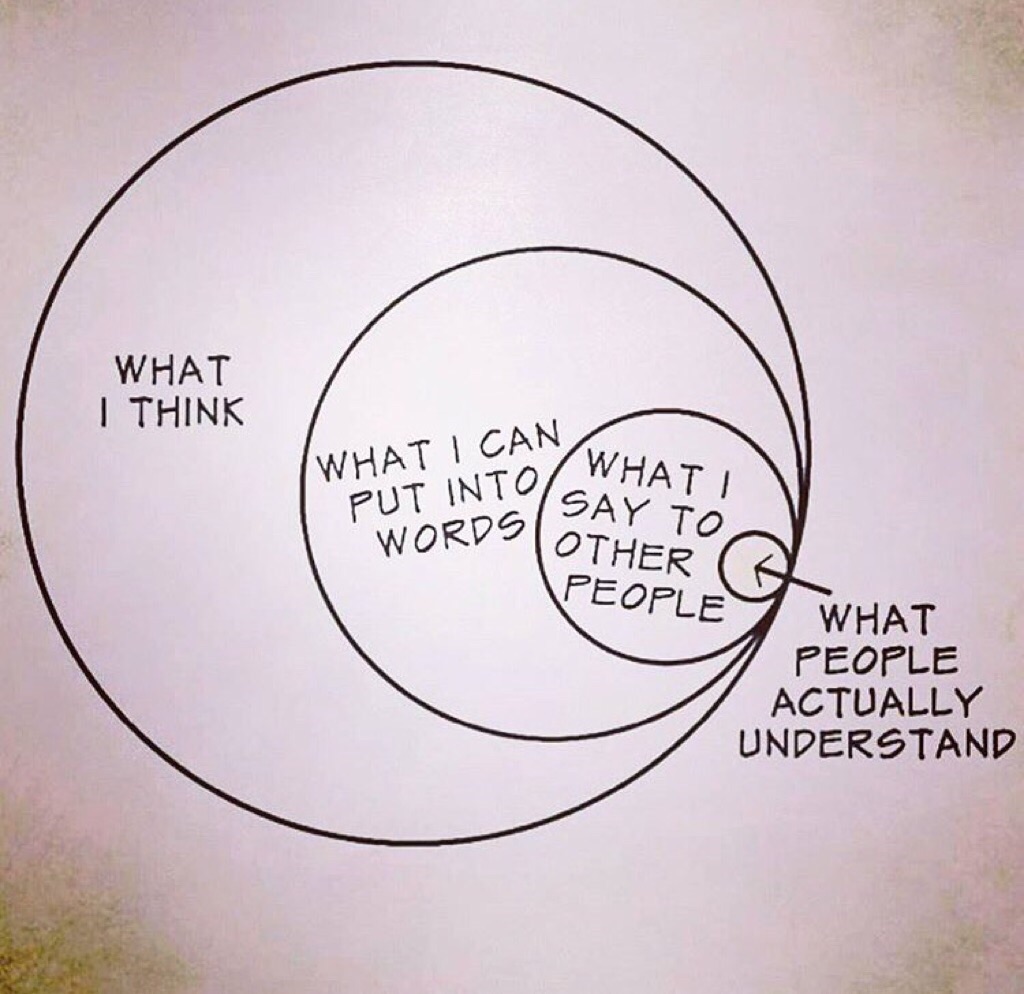

Interpreting in a digital world
28.11.2021
Every crisis holds opportunities. Even if it is not easy to recognise it, it is also true for international events. more
more- We would love to meet again in person, but the pandemic doesn't allow it. Instead of accepting this and complaining, interpreters and technology companies have also thought about how an exchange can still take place. Today, interpreters are able to interpret from a distance. Remote Simultaneous Interpreting (RSI) is the technical term for this. Of course, this cannot replace a face-to-face exchange. But it is very suitable for many cases. For example, when it comes to keeping employees up to date and sharing important information. In the past, people had to travel long distances for a short meeting. The environment will thank us if we can offer alternative solutions for this. And companies save a lot of travel costs.
 close
close

How will we live together?
24.05.2021
Travelling after ages. I am in bliss. And in Venice at the Architecture Biennale. It is raining cats and dogs and we are almost all alone. more
more- I'm particularly taken with the Danish pavilion, where we sip treated rainwater. As I want to pour it into a beautifully decorated glass, I notice that my arm is far too short to reach the tap. The sign "Ask a friend" draws my attention to the fact that we always need each other. The Spanish pavilion will also remain in mind. It is called "Uncertainty", which seems very appropriate to me in these times. However, the title refers not only to the pandemic, but also to the bursting of the Spanish real estate bubble, and thus the threat to the livelihood of Spanish architects. The room-filling installation "Cloud" consists of thousands of exposés that address the question "How will we live together?". The future developments are not foreseeable, all the more our explorative spirit is now called upon to keep discovering new ways.
 close
close
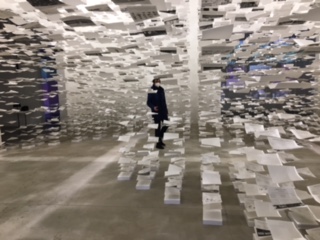
500 unused chairs
18.11.2020
A statement by Daan Roosegaarde really shook me up in these times. "We have to be curious about the future instead of fearing it!" more
more- But that was in the evening. In the morning when I arrived at the Reiterkaserne in Ludwigsburg, the first thing I saw was the art installation "500 unused chairs" by Robin Treier. It reflected my emotional state. We were about to work in an empty hall, without an audience. At that point I could not imagine the fireworks of ideas I would experience on the first day of the Spatial Worlds conference. There are people who don't complain, but roll up their sleeves and ask: " Alright, what can we do to improve this situation?" The result included animated operas, avatars meeting on virtual platforms, immersion in worlds of sound and mesmerising colours, and much more. After a long day of interpreting, I felt invigorated. And I remembered why I love my work. It's about a collective experience, about sharing ideas, about communicating those ideas to people from different countries, about experiencing the spark that ignites new ideas. And I felt like I belonged, even though we couldn't gather in one place. That gives me hope, and it makes me curious about the future.
 close
close
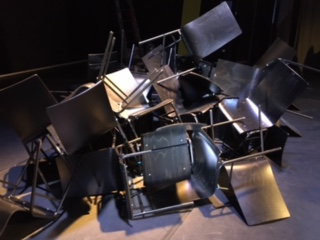
Much more than words
29.02.2020Early in the year, when the conference season is not yet in full swing, is the best time for professional development.
 more
more- This time the subject is the interpreters' voice. Gestures, facial expressions and emphasis help us to listen, understand and process information. The question is how we as simultaneous interpreters pass all this on to our listeners, given that, apparently disembodied, we can usually only be heard through headphones?
In the workshop "The voice from offstage" Christina Puciata, experienced speaker (DLF) and speech coach, teaches us the best techniques and skills to make the most of our voice. My goal is to be able to put so much into my voice that my listeners can follow with enthusiasm and stay concentrated at all times.
 close
close

Voice for Filmmakers
30.04.2019At the International Festival of Animated Film (ITF) in Stuttgart I translate for cartoon fans and filmmakers from all over the world. This is how I contribute to the success of exchange.
 more
moreThe 26th International Festival of Animated Film (ITF) will take place in Stuttgart from 30 April to 5 May 2019. This attracts not only cartoon and animation fans to the city, but also the filmmakers and artists involved. Thanks to them, the audience can watch 1000 of the best animated films from 41 countries. I love the international flair of the festival, listening to the variety of languages and seeing those sparkling eyes. I am therefore all the more pleased to contribute as an interpreter to the opening and the award ceremony on Sunday.
 close
close
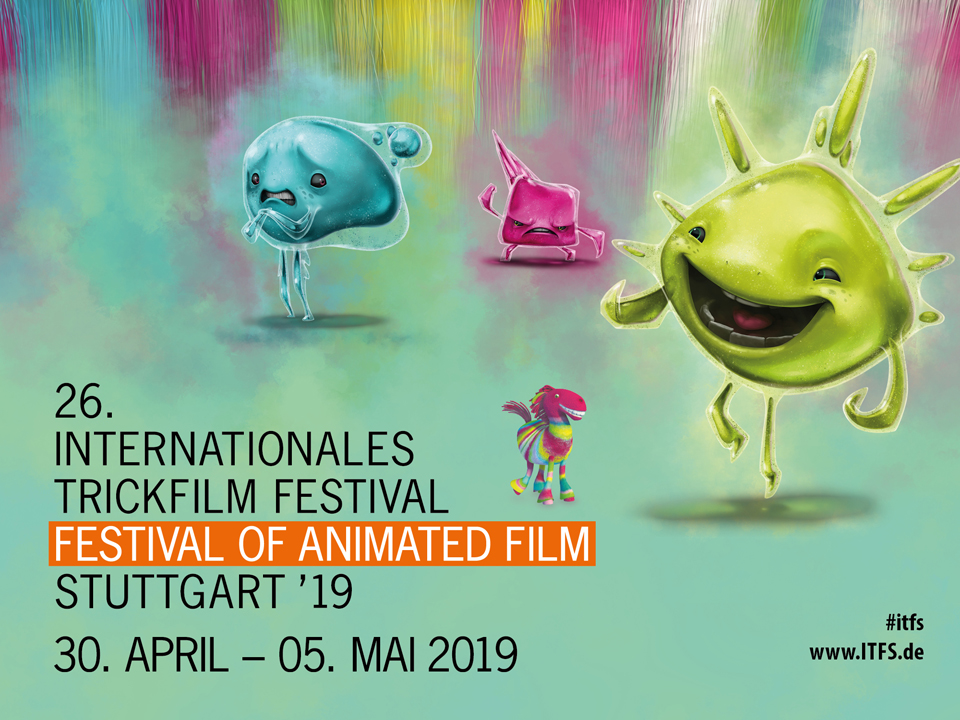
Silent Talk
15.01.2019Today, I am part of the team of VKD interpreting at the first BrandEx (International Festival of Brand Experience).
 more
more- We are already very excited, because even for us the format is something completely new. We simultaneously translate 100 talks on 15 stages into four languages. The event was organized as a "silent talk", where participants can choose the channel of their desired stage and language.
With several booths we are located in an "interpreter hub" behind - or rather in - the backdrops, we see our respective stage via a screen and feel like being right at the heart of it. When I walked through the venue earlier, I noticed that, in addition to the flexibility for the organizers, this format also offers a great advantage: it is pleasantly quiet. Small groups stand apart, talking undisturbed over a drink and networking without having to shout at each other. I suppose tonight participants will still be in the mood to party, because the day is so much more relaxing than it normally is the case at these events. But now I have to get to work, inspiring contributions are waiting to be translated. My favourites are the talks "Event Architecture and its Function as Designed Space for Encounter" by Tanja Kilzer/Kunsthistorisches Institut of Cologne University and "Expandes Spaces - How Media and Space Merge" by Prof. Ulrich Wegenast/ Film- und Medienfestival gGmbH.
 close
close
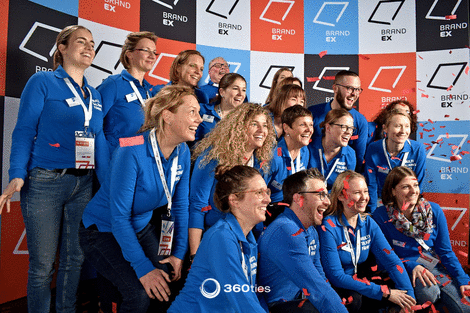
Accepted to the International Association of Conference Interpreters
27.04.2018Today my candiatur was accepted by the Association Internationale des Interprètes de Conférence (AIIC).
 more
moreAIIC is the only international professional association for conference interpreters. It was founded in 1953. Today, it represents the interests of around 3,000 conference interpreters in over 90 countries. I feel honoured to be a member of this association, and I would like to express my sincere thanks to my colleagues who have supported me in this.
 close
close
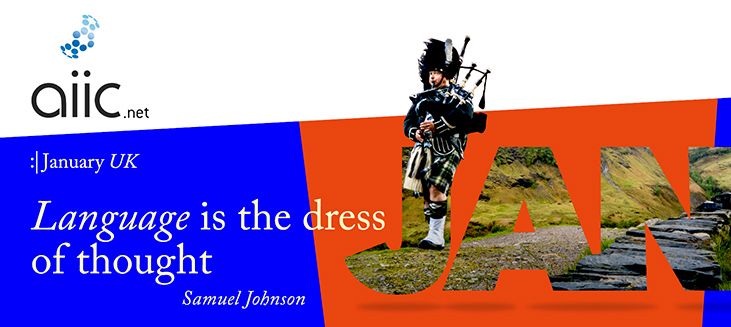
Interpreters meet their clients
20.06.2018As a representative of the German Association of Conference Interpreters (VKD), I am looking forward to meeting our clients at Global Connect.
 more
moreGlobal Connect is an international trade fair that takes place biannually in Stuttgart. This is where all professionals dealing with globalisation, the world economy and trade relations meet. To do business abroad, you also need interpreters who are able to communicate competently from one language into another. This is why we are there. We will now spend two days talking to our clients and answering all imaginable questions. I look forward to meeting many new faces. Come and visit us in hall C2 - booth 2B20.
 close
close

PR officer for VKD
28.-01.2018Today, together with my colleagues Anne Berres and Lea Spang, I was appointed PR Officer of the German Association of Conference Interpreters (VKD).
 more
moreWe look forward to working with the press to support our professional association and to promote the conference interpreting profession. Our tasks include the preparation of press releases, the fostering of press contacts, the organisation of exhibition stands and much more.
 close
close

Now, what is the right term – Digitalisation or Digitisation?
12.11.2017Digitalisation is the buzzword that comes up in almost every conference. In German, it is used as a very broadly diversified term.
 more
moreWe mean connectivity of knowledge and information, industry 4.0, the use of automation, simulation, planning and control systems, analytical tools, internet-based business models and much more. At the same time, we use the term digitalisation for the conversion of analogue data into digital formats, such as when scanning documents.
In English, I have to decide - depending on the context - whether it's "digitalisation" or "digitisation"? Few people know an answer to this question, and even native English speakers get confused, which is why the two terms are often used as synonyms. In our role as interpreters and translators we need to be more precise and follow the definition:
"Digitalisation" means the use of digital technologies to facilitate business processes and everyday life, whilst "Digitization" stands for the conversion of analog to digital data.In English, you can say: "Digitization is the integration of digital technologies into everyday life by the digitization of everything that can be digitized."
If you would like to know more about the origin of the terms and how they are used, I recommend the article from the "International Encyclopedia of Communication Theory and Philosophy".
 close
close
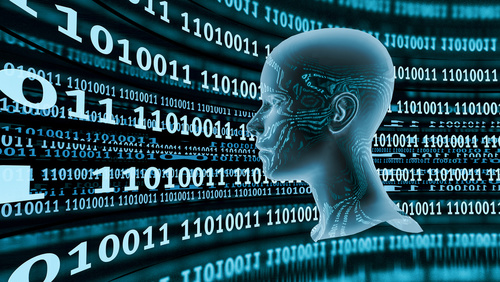
The difficulty of communication
14.11.2017Of course this is nothing new. We have all experienced how difficult it can be to be understood correctly.
 more
moreBut it is worthwhile to be aware of it. Thinking happens so much faster than speaking, and then what I say has to be fit for the purpose, tailor-made for my audience, and politically correct. As a public speaker I might be afraid to be misunderstood, or too embarrassed to express myself clearly, or I want to sound more intelligent than I really am. Now, considering all this, imagine giving a presentation in a foreign language. The people we talk to might have an entirely different mindset, different experiences, and perhaps they even have a different cultural background.
As a conference interpreter I am trained to cope with these situations. I am aware of the differences. And I do my very best to get across everything you want to say, so that you are understood correctly.
 close
close
